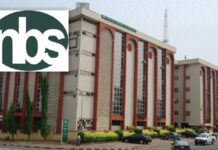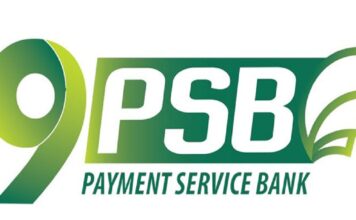Treasury Bills Yield Falls to 3% as CBN Hacks Rates
The Nigerian Treasury bills secondary market registered increased demand for the short, mid and long-dated instrument after the apex bank hacked spot rates at the last primary market auction conducted.
As a result of buying interest in the space, the benchmark yield fell by more than 100 basis points to 3% ahead of inflation data and borrowing schedule for 2024 – and liquidity levels came under pressure.
According to traders’ notes, demand cut across the tenors in the Treasury bills secondary market, while transactions in the open market operation (OMO) bills remained thin.
Within the Nigerian Interbank Treasury Bills market, yields across various tenor options decreased by 4bps, 16bps, 45bps, and 122bps for the 1-month, 3-month, 6-month, and 12-month maturity periods, according to Cowry Asset Limited.
At the recent primary market auction, the Central Bank of Nigeria (CBN) sold N57 billion worth of instruments across 91-day, 182-day, and 364-day maturities, matching the amount offered.
Investment firm Cowry Asset Limited said in its market update that stop rates for the 91-day and 182-day maturities dropped to 2.44% and 4.22%, respectively, from previous rates of 7.00% and 10.00%.
The 364-day maturity rate also decreased to 8.39% from 12.24%. Total subscriptions reached N1.1 trillion, resulting in a bid-to-cover ratio of 20.2x, with the highest demand seen for the 364-day maturity.
These transactions impacted the liquidity level in the financial system. Data from FMDQ showed that short-term interest rates climbed to double digits as funding pressures surfaced.
Key money market rates, such as the open repo rate (OPR) and overnight lending rate (OVN), surged and concluded at 21.85% and 22.60%, respectively.
Yesterday, activities in the NTB secondary market were bullish as the average yield dipped by 101bps to 3.0%. Across the curve, Cordros Capital Limited told investors that the average yield declined at the short (-28bps), mid (-58bps) and long (-136bps) segments.
These yield contractions were due to demand for the 42-day to maturity, 168-day to maturity and 315-day to maturity bills, respectively.
Following buying interest on 42-day to maturity bills, its associated yield curve slid by 110 basis points. Demand for 168-day to maturity bills caused yield to decline by 152 basis points and 315-day to maturity dropped by 528 basis points.
Elsewhere, the average yield was unchanged at 8.4% in the OMO segment. In the FGN bonds, the secondary market traded on a bullish note, as the average yield contracted by 15bps to 13.4%. NBS And The Task of Delivering Reliable National Data
Traders at Cordros Capital said across the benchmark curve, the average yield declined at the short (-24bps), mid (-33bps), and long (-4bps) segments. The market registered buying interest in the MAR-2024 (-72bps), APR-2032 (-42bps) and JUL-2053 (-48bps) bonds, respectively.




























































































